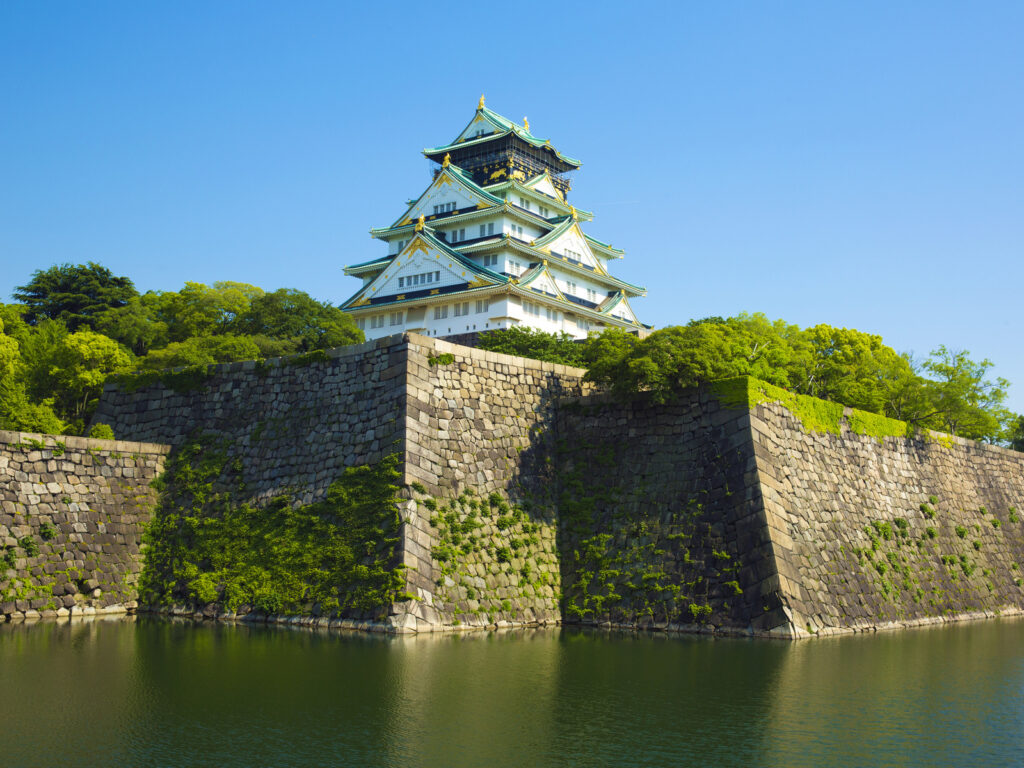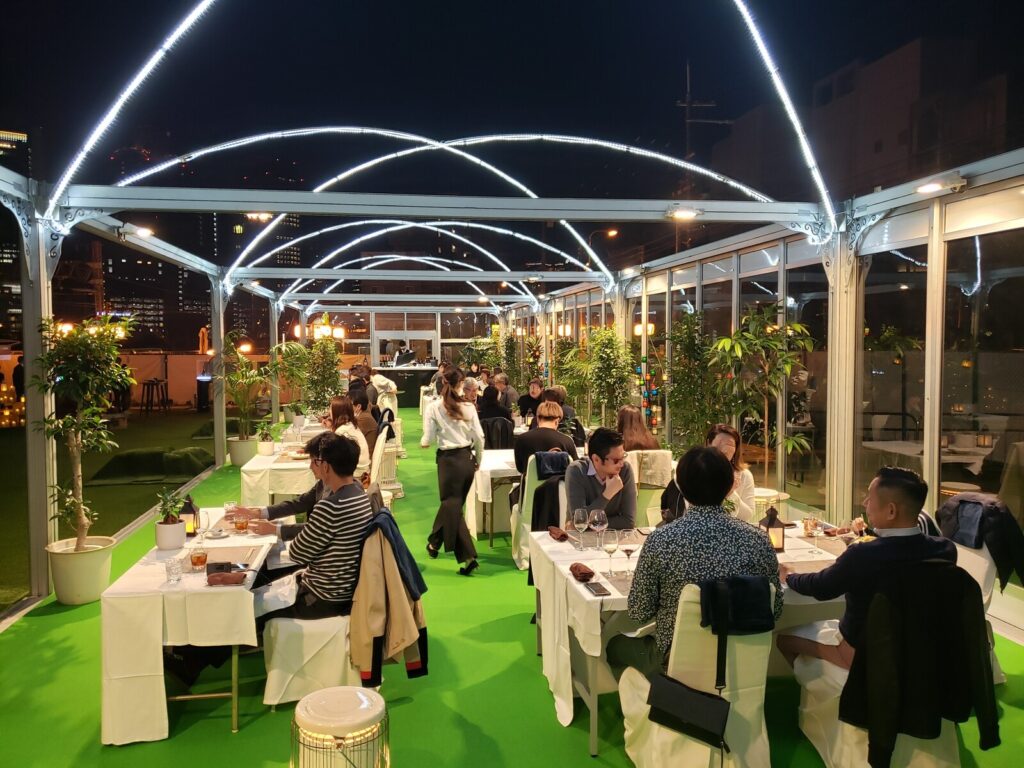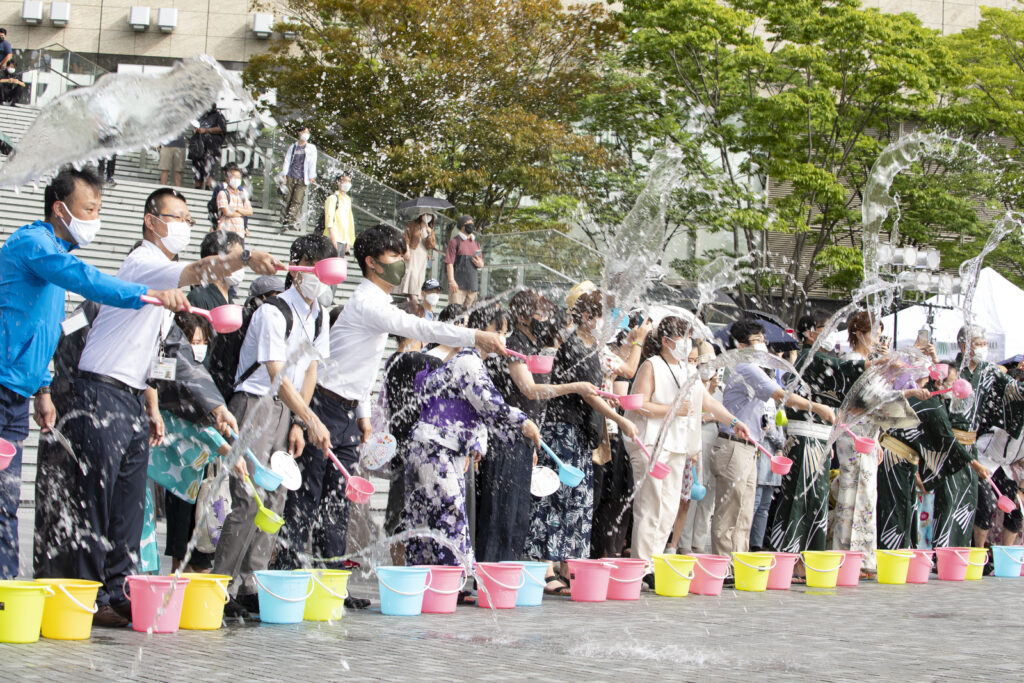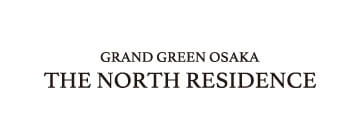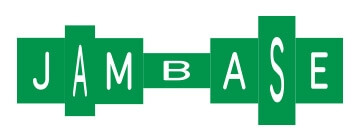Creating coffee spaces to invigorate the community and facilitate interchange.
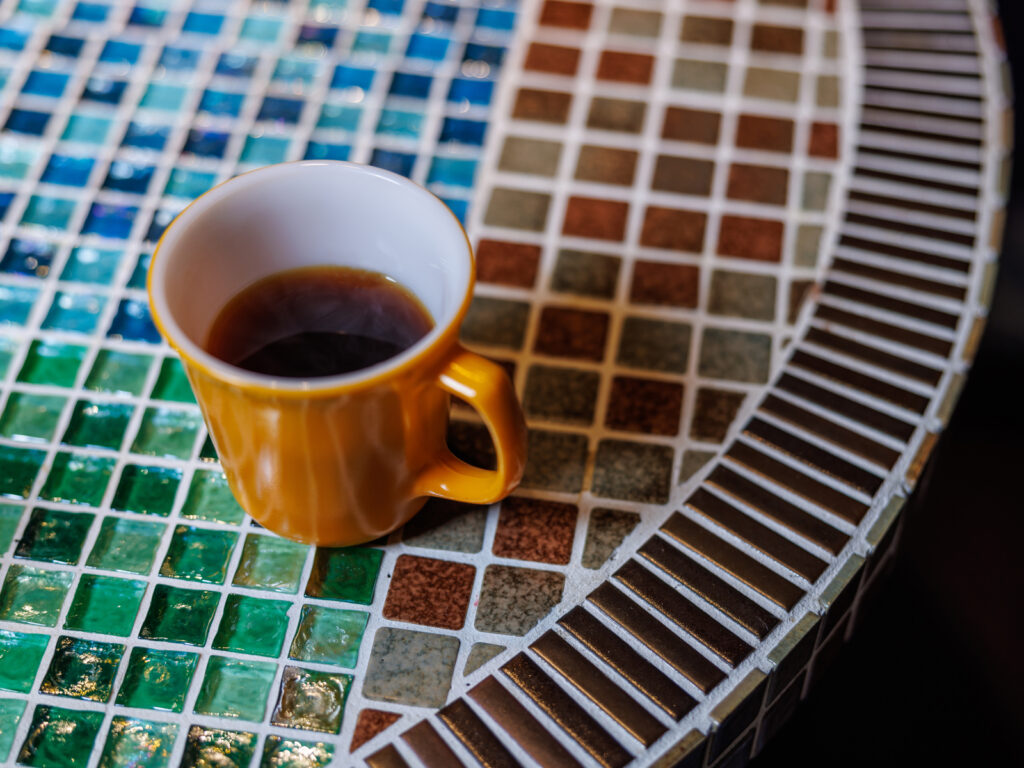
The yearning for a nice cup of coffee has become firmly entrenched in our modern-day – and constantly evolving – lifestyle, with unique specialist stores and cafes opening all over the place, while increasing numbers of people are investing in their own equipment for a home-brewed fix. Mr. Akimasa Kawakubo, who is based in Osaka where he organizes the “Japan Coffee Festival,” is renowned for his efforts to boost the community and connect people over a cup of coffee in the firm belief that “Coffee makes for a more peaceful world.”
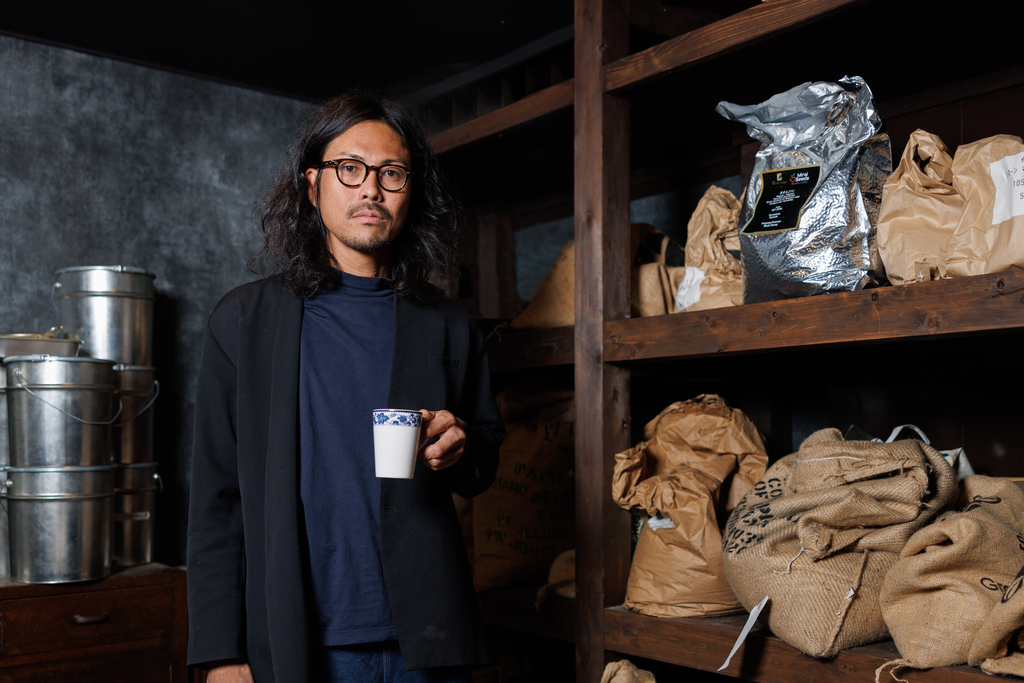
The “Japan Coffee Festival” is an event where coffee brewed under a theme by coffee stores from around the country can be tasted and compared. Launched in 2016 – 39 events have already been held, mainly in western Japan. Kawakubo, who is the representative director for the event, has a fairly unique background, having immersed himself in the world of coffee after his previous occupation as a physiotherapist.
He said, “While working as a physiotherapist in a hospital, I started roasting coffee beans as a hobby. Whenever I made some coffee, the aroma wafted down the ward, and naturally, doctors and patients started congregating. In such moments, I realized that the doctor-patient relationship evaporated; we all felt on an equal footing and became more open-minded, after which the conversations flowed.
Also, young stroke patients in their thirties and forties may be physically debilitated, but mentally acute, making it difficult to find a job, so many secluded themselves at home after being discharged from hospital. However, I thought that places that served coffee could inspire many fresh ideas, such as, “I could do this sort of job, despite my disabilities.” Thus, that was the catalyst to my idea that I wanted to serve coffee outside the hospital as well. There are a huge variety of coffee bean types, with amazing differences in taste between them. I really wanted to create somewhere that people could compare those tastes.”
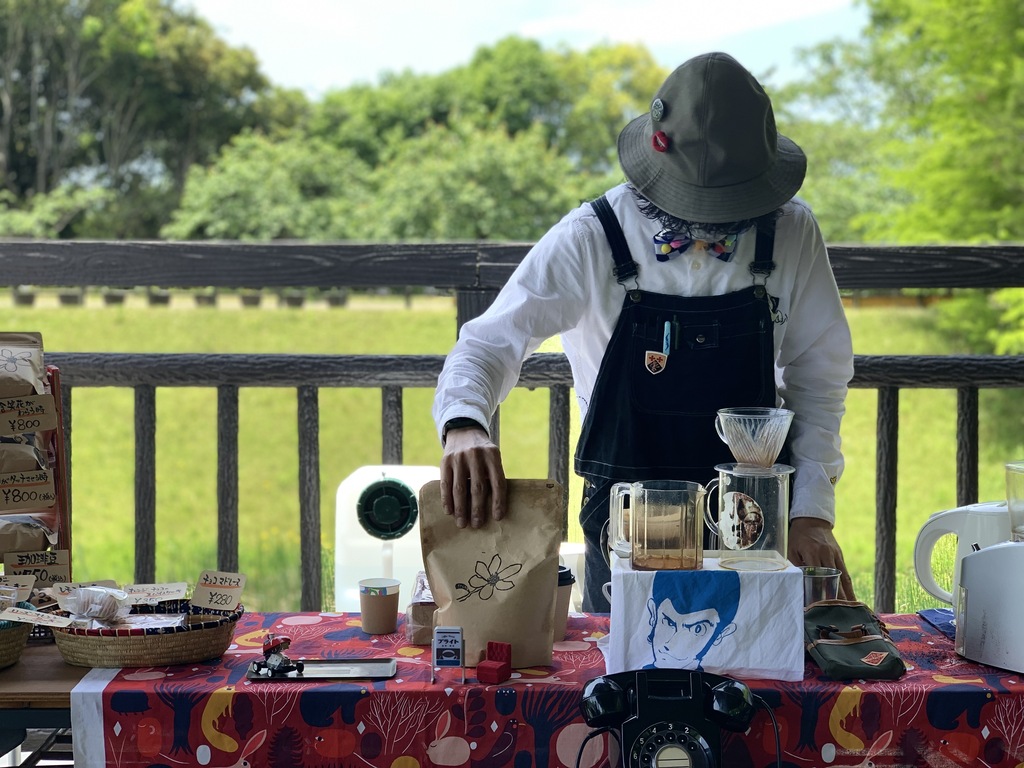
25 stalls were featured at the first event held in Nakazaki-cho, Osaka, serving 2,000 visitors; then 50 participated in the second event in Shimogamo shrine in Kyoto, where the number of visitors surged to 20,000. Although, the number of stalls and visitors increased, he felt a dilemma, as not everyone was satisfied, and they failed to realize their intended interest. The fifth coffee festival held at Koyasan proved to be a turning point.
He said, “We planned to set up coffee stalls at each station from Kudoyama to Koyasan with Nankai Electric Railways. Until that stage, we often had complaints from visitors that they didn’t know where to drink their coffee or that it took too long to serve. However, when the event was held at Koyasan, visitors were very satisfied as they could have an extraordinary experience in the countryside while chatting with coffee shop staff, and the locals were also thrilled to have so many visitors. I wanted to continue in this manner, so I decided to add community invigoration as a core activity.”
Since then, a succession of thematic festivals has been successfully organized connecting each region with its products/experiences and coffee; for example, a “Coffee with book report” event at the Kobe Brick Warehouse, a “Coffee in aromatic harmony with plants” event at Uji City Botanical Park in Kyoto, and “Coffee with Osamu Tezuka’s works” in Takarazuka. The venues have been enthused with a comfortable atmosphere, leaving visitors delighted with their new encounters and discoveries. The secret seems to be to focus on creating a space for coffee-infused communication rather than on selling coffee.
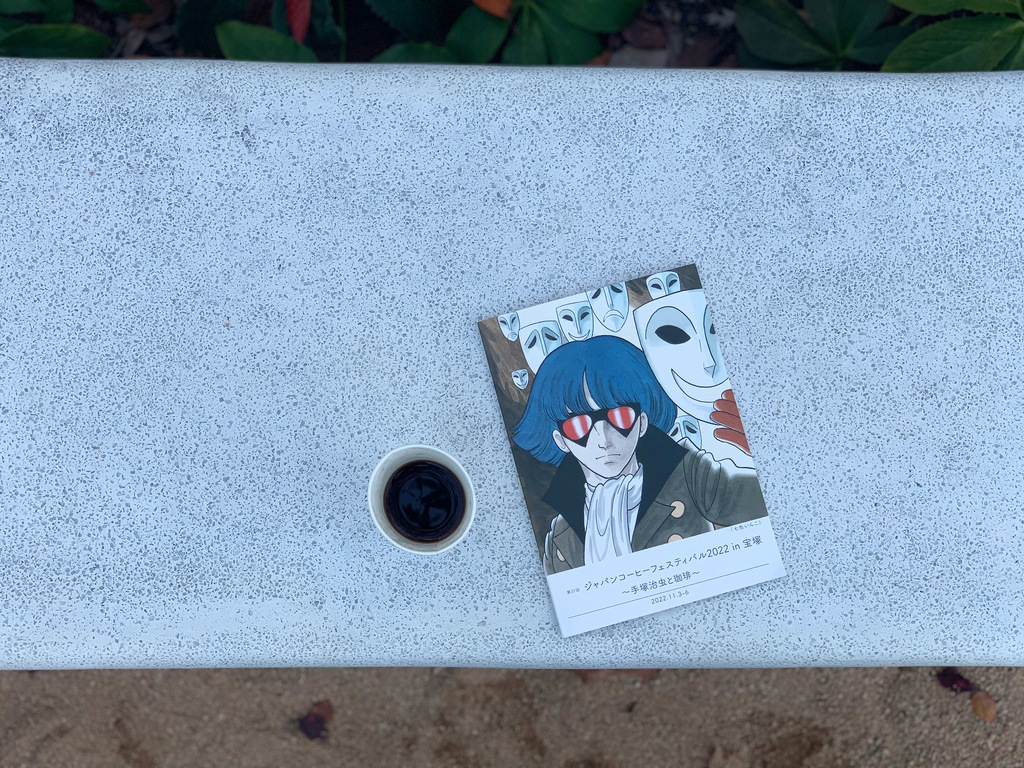
As it became more difficult for Kawakubo to balance his work as a physiotherapist with his extracurricular activities, he decided to devote himself to coffee. Currently, while managing the festival activities, he also runs three shops, namely, “Coffee Roasting Laboratory – Higashimikuni,” “Shopping Plaza Coffee,” and “Coffee & Bakery ARLES.” Perhaps surprisingly, however, he was not so interested in running a coffee shop. He opened the first shop to raise funds for the festival by looking for a space where such business could be started immediately, and found a former izakaya (Japanese pub) that was fully furnished. The second shop is in a public market that hosts a variety of specialty stores, a mere two-minute walk from the first shop. After seeing a notice soliciting a tenant attached to the cash register, he opened a coffee shop to retain and enhance the old-fashioned charm of the public market. Then, a third was opened by revamping a bakery beloved by locals for its Levain variety that had been handed down through the generations for 80 years, in keeping with the wishes of the former owner.
“I want to create places where people get together and communicate, just like at festivals. Such places are important, so I pursue these activities, such as at the public market and bakery. simply to ensure they don’t disappear.”
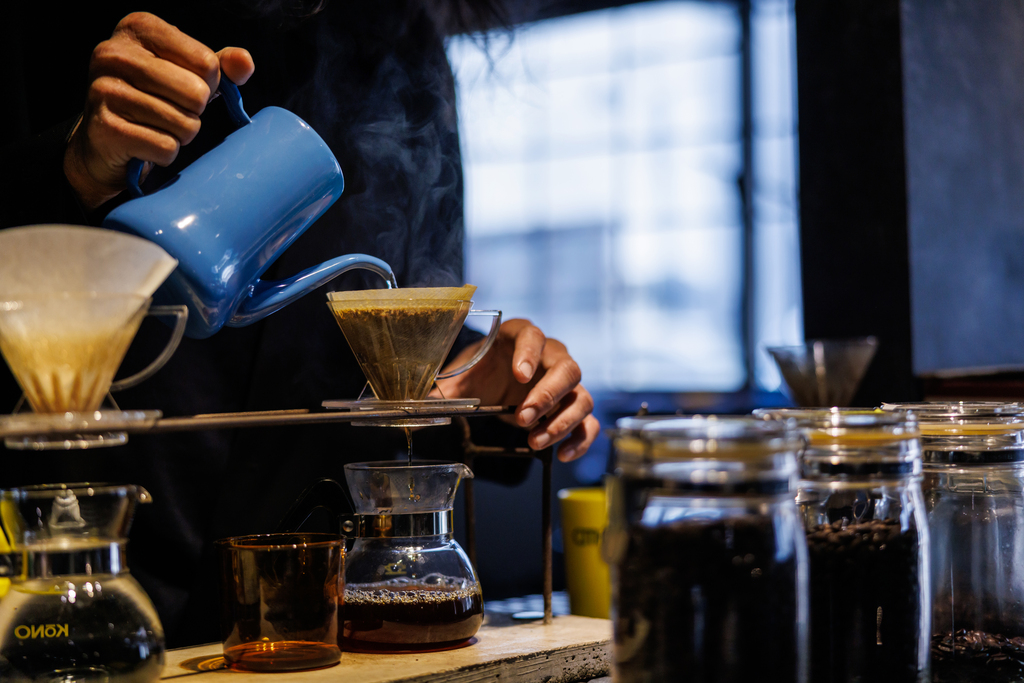
He is currently preparing the fourth shop, “Yodogawa Coffee Roastery” near the Yodo River. All of his stores are within Yodogawa ward as Kawakubo had certain things on his mind.
“After quitting my job as a physiotherapist, my financial situation was very tight, so our family of four had to live at my parents’ house, but we were able to move into another house thanks to Coffee Roasting Laboratory. This town saved me, so I want to return the favor by supporting the area with great coffee. The Yodo river flows just behind the fourth shop, but the source is in Yogo-cho, Nagahama City, over in Shiga prefecture. I have a friend of a similar age who works hard to improve the water quality of Lake Biwa by reinvigorating the forest. If Lake Biwa is cleaner, so the Yodo River will also become cleaner. That is why I decided to open a shop near the Yodo River, and use some of the profits to support my friend’s activities.”
Kawakubo also uses the “Japan Coffee Festival” project to support withdrawn youth. The number of visitors to Kawakubo’s “Places to stay” with coffee has steadily increased as word of how interesting and cozy they are has spread organically. Many people are attracted to his natural posture and stance of offering support to the community rather than seeking short-term profits.
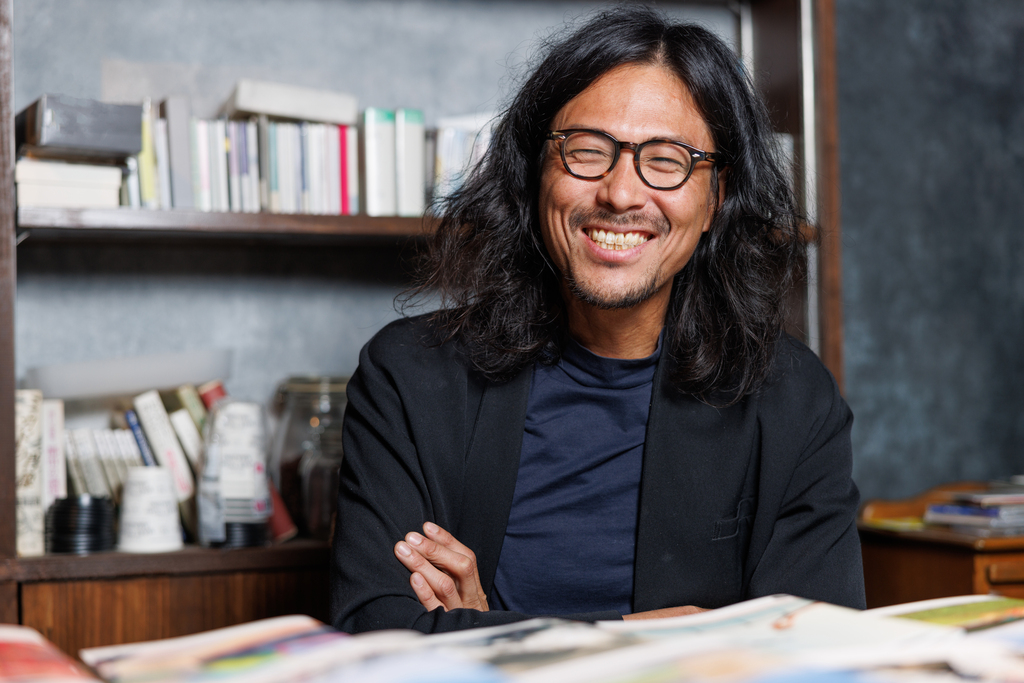
The Umekita 2nd Project will partially open in the summer of 2024. We asked Kawakubo about his expectations of this place, which will attract many visitors – not only from Japan, but also overseas. “It would be interesting if this becomes a place where we can share how wonderful Japanese coffee is. Our manner of dripping may be influenced by the Japanese tea ceremony, and if visitors like our way of serving each cup of coffee after sensing the atmosphere, we can convey our wonderfully unique Japanese culture; in other words, “reading the atmosphere” and “respecting the relationship with others” to foreigners. People from all over the world can enjoy cultural exchanges over coffee, and any such communication makes us all more tolerant of one another. This may be easier in Osaka, as it is a very open-minded city. I hope this place will have a positive impact on the world.”
Akimasa Kawakubo
Born in Takatsuki City, Osaka Prefecture, in 1983. After working at a hospital as a physiotherapist for about 10 years, in 2016, he launched the “Japan Coffee Festival” event which brings together coffee shops from all over Japan. He is also engaged in supporting the socially withdrawn. In 2019, he opened “Coffee Roasting Laboratory – Higashimikuni” in Yodogawa ward, Osaka City. In 2023, he plans to open the “Yodogawa Coffee Roastery” café as a sister shop in Yodogawa ward.
Photography: Sadaho Naito Text: Natsuko Konagaya

 Share on Twitter
Share on Twitter Share on Facebook
Share on Facebook